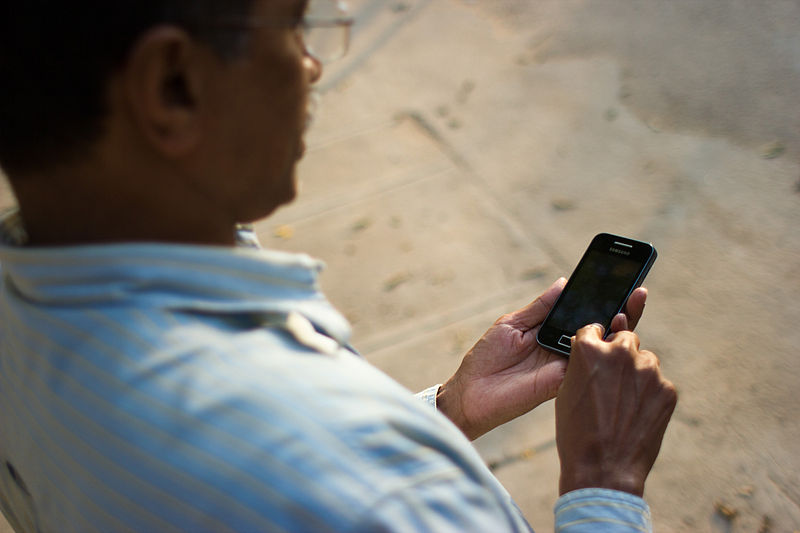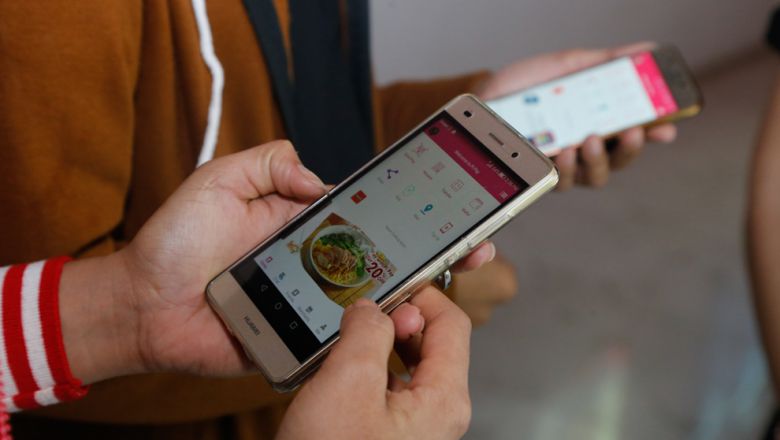A couple of years ago, our house help came in early. She brought her daughter with her. The daughter was working at a nearby fashion store as a salesgirl after her graduation. The previous night, she had arrived home from work, distraught and weeping. The mother could not understand what she was upset about. She thought my wife could help calm her.
After having some coffee, the daughter calmed down a bit and spoke about what had happened the previous day at the store. The store owner was unhappy with her using her mobile during working hours. He had threatened to put up photos of her slacking on Facebook. This had terrified her, as she thought her reputation amongst her friends and her local community was at stake. She could not sleep that night, fearing that she and her family would lose face.
After she narrated the incident, we checked whether the sales manager was a Facebook friend. He was not. She later confessed that she had deleted her Facebook account a while ago. Why was she so agitated then? She assumed that any photos of hers posted there would be seen by all her friends. Facebook’s privacy settings had been too complex for her to understand, so she assumed the worst. We had to reassure her that once she deleted her Facebook account, no one could tag her or make any content public. Even if she had not deleted her account, she could remove tags from photos others posted before any of her friends could see them. It took her a while to get convinced about this, but when she left, she was a lot calmer than she came.
This incident got me thinking.
I live in Bangalore, often called India’s Silicon Valley. Bangalore has a huge population working in the technology domain. Most college students carry smartphones. Here was a college educated salesgirl in an urban fashion store. We would assume that she would be comfortable with social media usage. And yet, she was so confused by the controls on the site that she thought it was a threat to her reputation. Finer aspects like abuse of power and violation of privacy were tough for her to comprehend. A threat about posting photos on Facebook from someone who was not even her friend had turned her into a nervous wreck.

The truth is that this girl is representative of many first-time digital users across growth economies. Thanks to cheaper smartphones and data plans, many users are getting their first taste of the internet. But many aspects that seem trivial to long-time technology users are seen very differently by such new adopters.
New opportunities and challenges
Smartphones have fueled the imagination of many who have just started understanding the power of the internet. In some ways, this has been timely. We are already seeing that the world post COVID-19 will rely a lot more on digital technologies. As we shift to transacting more online, we will see a larger number of gig jobs. From entertainment to education, smartphones, apps, and online services will play a greater role in lives of the new digital initiates.
A lot of this, no doubt, will improve the lives of billions. Going online is opening new vistas for exploration and providing new opportunities. Thanks to smartphones, new entrepreneurs and business models are aplenty. We see housewives post extra plates of lunch on WhatsApp groups for others in their locality to order. Local teachers take to Telegram to coach students appearing for exams. Drivers-on-hire get you and your car safely back home after a late night at the bar, so you need not drive when drunk.
And yet, there are unexpected challenges. Internet-driven models and services are largely designed for people who are comfortable with digital literacy. There are a lot of assumptions baked into how these are designed or delivered. As first-time digital users start using these services, many of these assumptions do not hold.
As digital technologies are likely to play a bigger role in the future of work, here are some points to consider.
Better terminology & representations
Websites and apps often have different privacy and consent policies. These are difficult enough for us to understand but can be befuddling to first-time digital users. Most are written in legal language that is difficult for common users to understand. They are made easy to click through so the apps can claim they received approval from users. As these vary per app or website, it is often easy to lose track of what one has agreed to. A more inclusive design could involve a common set of representations for terms like privacy and consent, preferably with videos explaining what the users are signing up for. For gig workers, this could greatly improve their understanding of what permissions the business asks of them. For example, knowing that you are being tracked only when you are on the job and not otherwise can be reassuring.
Better explanation of downside risk
Many first-time digital users sign up for gigs based on referrals from friends. But often, the downside risks are not well understood. A while ago, I took an auto rickshaw (tuk-tuk) to office. As I chatted with the driver, I realized that he had earlier signed up as a cab driver for one of the many ride-hailing apps. As part of the deal, he purchased his taxi on a loan arranged by them. After a few months, he wanted to take a vacation and get home. He parked his taxi at their designated garage. When he returned, he was told that he had to pay a huge per-day parking charge before he could take his vehicle. This shocked him, but the company agent said it was part of the initial agreement he had signed. He did not know enough to debate them. After a few days, he realized his negotiation was going nowhere, and the taxi loan payments were due.

He finally opted to forego the taxi and the money he had paid for the loan as he felt there was no other choice. This made him wary of gig opportunities in the future, and he decided to take up a safer, though less remunerative, option. He would have understood things much better if the downside risks had been better explained. This could again be done by using tools like video in languages that gig workers are comfortable with.
Better avenues for grievance redressal
A food delivery executive I spoke to recently complained about a late-night delivery he had to make a couple of days ago. He had picked up the food but was accosted by local bullies on the way. He could keep his phone, but they grabbed the food. When he rang up the food tech firm, he was told that he would have to pay for the food stolen from his remuneration. As online businesses grow, we will see many such cases of grievances that come up. First-time digital users may not be aware of grievance redressal mechanisms in place. More education on these and better policies will help.
——-




